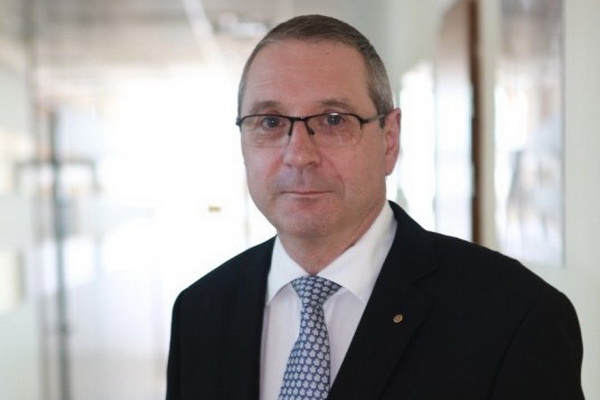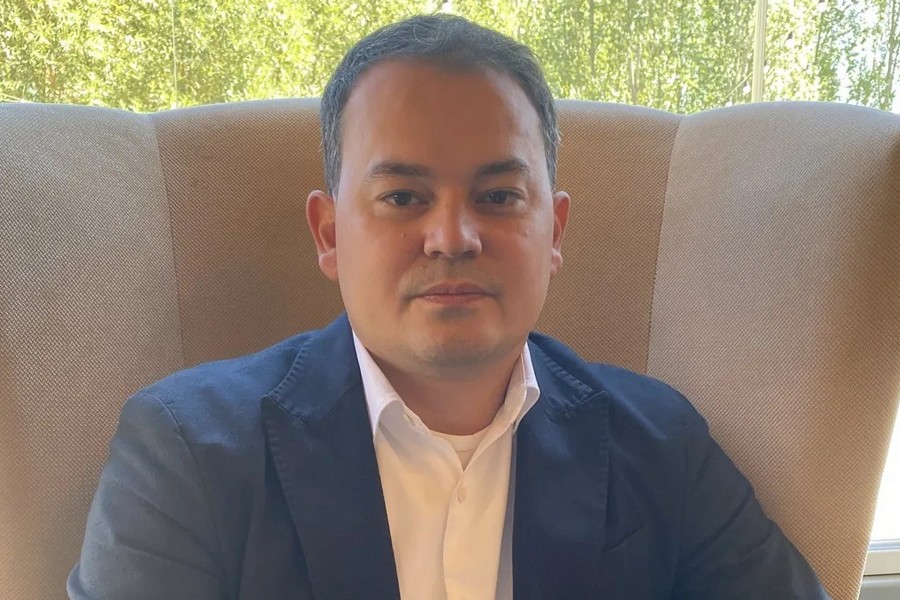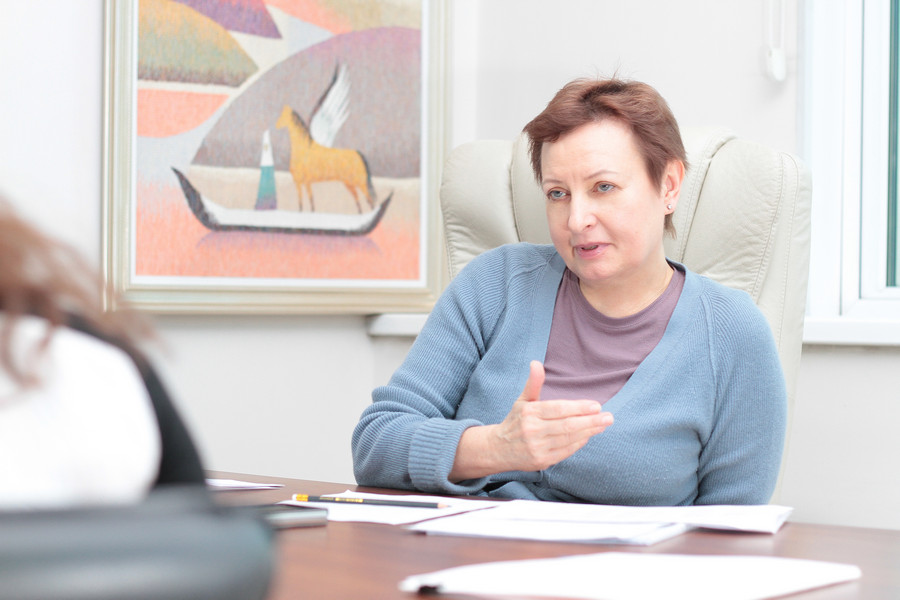CEO (Chairman of the Board) of the Airport Management Group (AMG) LLP Claude Badan:
IF AIRLINES DECIDE TO FLY TO A CERTAIN CITY THIS DEPENDS ON THE MARKET IN THE 1ST INSTANCE AND, SECONDLY, ON THE AVIATION SAFETY LEVEL

The most of state-run airports are unprofitable In Kazakhstan and some of them are bankrupt as a matter of fact. Today the airports are unable to cover their own operating costs not to mention investment in the development and attraction of air carriers. With the aim of bringing issues of flight safety, in-flight service quality into conformity with international standards and of achieving financial stability the Airport Management Group (AMG) as part of National Company Kazakhstan Temir Zholy (KTZ) is established for managing 11 state-run airports. CEO (Chairman of the Board) of the Airport Management Group (AMG) LLP Claude BADAN talked in an interview with Interfax-Kazakhstan about the company’s long-term plans.
– Today there are 6 management airports under the AMG management. Tell about the company main objectives at the moment?
– The 1st important objective is to bring the flight and air safety situation into conformity with the ICAO standards in all the state-run airports. The 2nd objective is to improve financial performance of the state-run airports.
For that [purpose] KTZ signed a 7-year contract with Zurich Airport who has been the leader in air and aviation safety in the 10 last years. This contract contains two objectives. The 1st one is the full support from Zurich Airport in operational, administrative, commercial issues and HR policies. The 2nd objective is to share international experience and the know-how technologies with the staff of the airports.
For the time being our company has undertaken the responsibility for 6 out of 11 state airports – of Astana, Kyzylorda, Kokshetau, Petropavlovsk, Shymkent, Kostanai. In a couple of months Pavlodar, Atyrau, Aktobe [Airports] will be handed over [to us]. The handover of Semei and Ust-Kamenogorsk [Airports] is planned for next year.
– What is the financial state of the state-run airports like and which way do you consider acceptable for the achievement of financial stability?
– Out of the 6 airports the most positive situation with Astana [Airport] and Shymkent [Airport], Kostanai [Airport] has neither profit nor loss, Kyzylorda [Airport] is in the red. Kokshetau and Petropavlovsk [Airports] will go bankrupt without the support of AMG and currently KTZ has been paying their staff current and outstanding wages.
For information: Bills payable for Kokshetau and Petropavlovsk [Airports] amount to nearly 1.450 million tenge (185.8 tenge/$1).
Any airport must handle no less than 200,000 passengers a year in order to cover operating costs, according to international standards. In terms of the 2014 figures passenger transit through Astana [Airport] amounted to 2.9 million, Shymkent - 440,000 passengers, Kyzylorda [Airport] – 170,000, Kostanai [Airport] – 120,000, Petropavlovsk and Kokshetau [Airports] – 17,000 and 18,000 passengers, respectively.
In other words, many regional airports, e.g., will be never able – it’s impossible – to cover even operating costs.
– What solution to this do you see?
– The solution is the government subsidies. The government subsidizes the air routes of the airlines but not the airports. To this end our law department is closely working with the ministry of investment and development on drafting amendments, including tax amendments. In these circumstances we see the two get-outs – we will either find mechanisms for subsidies or close down an airport.
But these regional airports are vital for citizens of your country and so we will do our best in order not to close the airports.
– What measures are taken which are aimed at improving the Astana Airport services given the looming exhibition EXPO-2017? AMG announced an intention to involve two global leaders of in-flight catering production and to improve ground handling services. At what stage are the negotiations?
– The involvement of the two global leaders is not related to the EXPO, but this will help EXPO-2017. Even if there were no exhibition we would attract global leaders in any case in order to enhance quality but not because our local companies are not doing the job properly.
For example, Swissport services nearly 45 countries, has 55,000 staff offering only ground handling and refueling services. They have already cutting-edge IT and ground handling management technologies. It would be too costly for the airport of Astana to use these tools.
A decision to cooperate with Gate Gaurmet – world wide leader in in-flight passenger catering production – is also related to these factors.
Now we are finalizing the negotiations with both of these companies.
– Will the contracts be signed by the end of the year?
– I think so.
– What are the main cooperation terms and conditions?
– To date exact amounts and figures have not yet been fixed. Our main condition is that Swissport and Gate Gaurmet till take over the whole local staff. Thus, they will do work, will pay the airport rents for the utilization of the facility and areas as well as royalties.
– How is the progress in developing the airport of Shymkent?
– We plan to construct a new terminal to the south of the current terminal (since land near the current airport is owned by the defense ministry and privately owned). In addition, a rail spur pass nearby the near terminal, and KTZ made a decision to build a large transport and logistics center about 2 km away from a runway like most of airports in Europe.
The 2nd vital part of this project is the construction of a large cargo terminal and there would be a parking area for trucks in its vicinity which would carry goods to the airport back and forth. This is big prospects for freight forwarding given that the Western Europe – Western China International Transit Corridor passes through Shymkent.
The 1sr part of the project is to be implemented by 2017.
Thus, Shymkent would feature the 1st intermodal gateway linking up roads, railroads and flight routes. Now we are working on a design on the project and scrutinizing financing issues.
– Will Shymkent’s experience be applied to the other cities?
– Yes. We are working together with KTZ in order to practice freight forwarding both by air and by rail. E.g. we propose to transport goods from China to Kazakhstan (Astana) by rail and Kazakhstan to Europe by air? Why so? Today transportation of one container by rail or sea from Asia to Europe costs $10,000 and takes 14-15 days, transportation by air takes 1-3 days for $50,000. If we mix transportation of delivery time-sensitive goods then it would take 6-7 days at a cost of $30,000.
The construction of temporary storage warehouses is required for the implementation of this project. And wide body aircraft are required for simultaneous transportation of passengers and goods but today most of such planes fly from Almaty not from Astana.
When KTZ becomes capable of delivering 100,000-200,000 tonnes of cargo annually then we can start using wide body cargo aircraft.
– What volume of investment is to be made in all of the 11 airports in the long-term?
– A total of 250 billion tenge is to be invested by 2030 in the 11 airports. In the next five years 167 billion tenge will be invested in the development of the 6 airports, which are under our management today. So, 61 billion tenge will be invested in Astana [Airport], 7.7 billion tenge in the [airport] of Petropavlovsk, almost 13 billion tenge in Kostanai [Airport], 6.5 billion tenge in Kyzylorda [Airport] of, 23.5 billion tenge is to be invested in the construction of multimodal transportation center in Shymkent [Airport] by 2017.
– What prospects for increasing the number of passengers and cargo transportation after modernization of the airports?
– If airlines decide to fly to a certain city then this is not because that the airport over there is upgraded and new. This depends on the market in the 1st instance and, secondly on the aviation and in-flight safety level.
That’s why the highest priority issue to me is flight safety. The work with the airport of Zurich is specifically focused on enhancing the safety level; this is an urgent long-term work. I would like to note that 3.1 billion tenge is required from the 2015/2016 government budget for six airports to be fitted with the most necessary equipment.
It is possible to do a lot with having monies available but it will take much more time to alter the staff mentality in order for them to understand the uttermost importance and necessity of compliance with the ICAO requirements.
For example, all the airport staff, including me, have passes. When I arrived at the airport last year I was allowed in without a security check. When I asked what about the check I was told: You are the boss. And every time when I travel to various airports they repeat one and the same mistake. We must alter this.
– Will the tariff policies of the airports change?
– The airports have the two main revenue items: aviation activity and non-aviation activity (restaurants, shops, taxi, duty free). About a year ago a law was adopted in Kazakhstan, which allows [us] to earn money from non-aviation activities without limitation. And now we are working very hard in order to boost the airports profitability through non-aviation activity.
For information: Astana Airport earns 9% of its net profit from non-aviation activities, Zurich Airport - 50%, Istanbul Airport – nearly 70%.
What we did for that: firstly, we altered the contract system with lessees – now every lessee must pay fixed rents and a percentage of profit like in the Western counties.
Secondly, for the purpose of boosting the quality of the passenger handling services the single taxi provider is selected. While awaiting baggage arriving passengers can book a taxi at fixed prices at the gate. A taxi car will be awaiting clients in the 1st line at the entrance of the terminal. At will one can take a taxi elsewhere but these taxi cars will not await in the first line.
In addition, our team is currently working on how to take some types of tariffs off the government regulation list. We hope we will succeed in making amendments to the legislation by the end of this year. It should be noted that there have been no changes to the tariff policy since 2003 and now the most of tariffs are loss-making. The flexible tariff policies of the airports will make it possible to attract new air carriers, boost competition and this would result in less expensive flights.
– Thank you for the interview!
May, 2015
© 2025 Interfax-Kazakhstan news agency
Copying and use of these materials without reference to the source is prohibited
Archive





